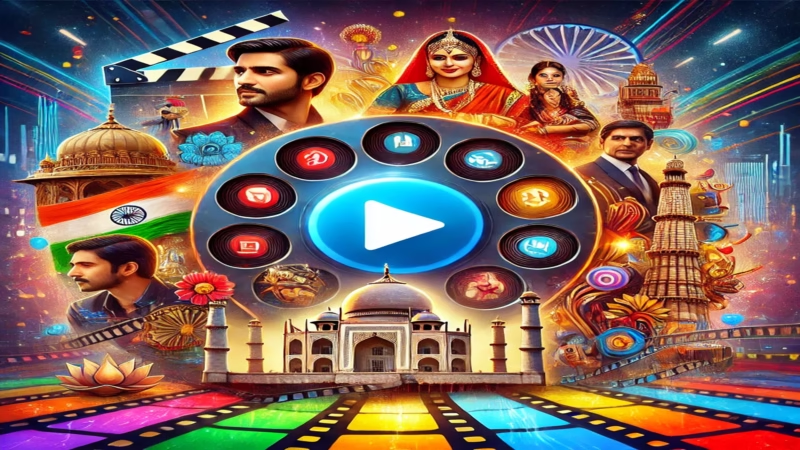Indian film awards have long been seen as a symbol of prestige and recognition for outstanding talent. From the National Film Awards to popular platforms like the Filmfare Awards, these ceremonies have celebrated the best of Indian cinema for decades. However, in recent years, their relevance has come under scrutiny. With the rise of new platforms and audience preferences, do Indian film awards still hold value?
The Origins of Indian Film Awards
The first significant film award in India was the National Film Awards, introduced in 1954. These awards, presented by the Indian government, were designed to recognize the best contributions to Indian cinema, including artistic, technical, and performance categories. Filmfare, launched in 1954, became the first major private awards platform, providing glamour and excitement to the industry. Over the years, other awards like the IIFA (International Indian Film Academy Awards) and Stardust Awards followed, further enriching the landscape.
In the early decades, these awards held immense value. Winning an award symbolized success and national recognition. They celebrated artistry, skill, and cultural impact, cementing an artist or filmmaker’s place in the industry. Read more about the history of Indian cinema.
The Changing Landscape of Awards
As Indian cinema evolved, so did the film awards. The expansion of regional cinema and the growth of Bollywood brought more competition and diversity to the awards arena. However, the commercialization of the ceremonies became evident. With television broadcasts and sponsorship deals, these events started focusing more on entertainment than the art of filmmaking.
Over time, several controversies emerged, with critics accusing awards of favoritism and biased selections. Many believe that commercial success now plays a larger role than artistic merit. This shift in focus has left many questioning the integrity and value of film awards. For example, some award-winning films with immense box-office collections don’t always resonate with critics or independent filmmakers.
The Rise of New Platforms
One of the most significant shifts in the value of film awards is the rise of digital platforms. Streaming services like Netflix and Amazon Prime have changed the way audiences consume films. Independent and regional filmmakers now have wider access to global audiences, without relying on traditional recognition from awards.
Audiences are also no longer confined to mainstream films. With the democratization of content, viewers can discover films and talents that may not receive awards but still hold significant cultural and artistic value. This shift has led to a reduced emphasis on awards as the ultimate measure of success. Today, digital presence and audience engagement are becoming the true indicators of a film’s value.
Do Film Awards Reflect Audience Preferences?
A crucial criticism of Indian film awards today is that they often fail to reflect changing audience preferences. While some awards focus on the same set of mainstream actors and filmmakers, audiences have grown more open to diverse and unconventional stories. Films like Masaan, Newton, and Lunchbox, praised for their storytelling, sometimes get overlooked in major categories by larger award ceremonies. This disconnect has made awards seem out of touch with the evolving tastes of modern cinema-goers.
Audiences now seek films that represent authentic stories and challenge societal norms. Yet, many feel that award shows favor glamorous, high-budget films, which may not always represent the best of Indian cinema. As a result, the value of film awards has declined for many fans.
The Globalization of Indian Cinema
As Indian cinema gains recognition on international platforms, the value of national film awards faces competition from global accolades. Filmmakers and actors are now more eager to win international recognition, such as at the Cannes Film Festival or the Academy Awards. These global platforms offer a wider audience and a higher level of prestige, further diminishing the impact of Indian awards.
The entry of Indian films on the global stage signals the need for Indian awards to evolve. They must align more with international standards of quality and innovation rather than adhering to formulaic, commercially driven selections.
The Value of Artistic Integrity
Despite the criticism, Indian film awards still hold symbolic value for many artists. Winning an award represents hard work, dedication, and artistic achievement. Awards like the National Film Awards continue to celebrate diverse genres, including independent films, documentaries, and regional cinema, ensuring that smaller voices get heard. This recognition can have a significant impact on a filmmaker’s career, elevating their status within the industry.
However, for awards to retain their value, they must prioritize artistic integrity over commercial considerations. The industry must refocus on recognizing talent and innovation, not just popularity. By returning to their roots, film awards can continue to play a vital role in Indian cinema. Learn about the role of film awards in shaping cinema.
Are Film Awards Still Relevant?
In a rapidly changing film industry, the question remains: do film awards still hold value? While they are no longer the only measure of success, they remain a part of Indian cinema’s fabric. The key lies in ensuring that these awards evolve to reflect the true diversity, innovation, and talent within the industry.
For artists and filmmakers, awards continue to offer a sense of accomplishment. But the value of these accolades ultimately depends on whether they are seen as genuine recognition of talent. If awards prioritize quality over commercialism, they can regain their relevance. Otherwise, newer platforms, digital recognition, and audience engagement will continue to take precedence.
Conclusion
Indian film awards have evolved over time, from prestigious accolades to commercially driven spectacles. In today’s industry, their value is being redefined. While they no longer hold the same influence they once did, awards still represent a milestone for many filmmakers and artists. As the landscape continues to shift, the future of film awards will depend on their ability to adapt to modern cinema’s needs. To explore more discussions on Indian cinema and its evolving trends, visit Films N Minds.
Indian film awards history Evolution of film awards Value of Indian film awards National Film Awards significance Bollywood awards relevance Filmfare Awards controversies Indian cinema recognition Impact of digital platforms on awards Audience preferences in cinema Modern film awards analysis Regional cinema recognition Importance of film accolades Globalization of Indian cinema Changing landscape of film awards Awards vs. audience engagement Artistic integrity in film awards Criticism of Indian film awards Future of Indian film awards Celebrating diverse voices in cinema Role of awards in film industry









